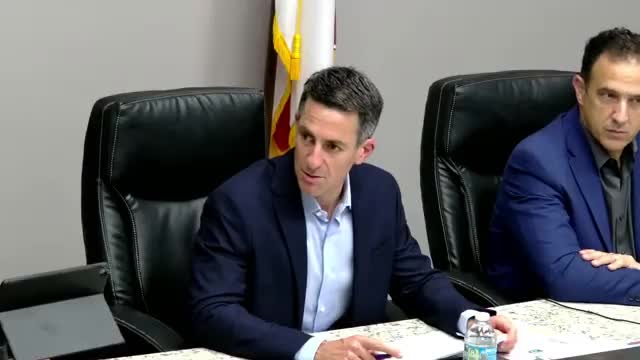Safety Harbor arborist outlines permit fees, mitigation rules and state preemption concerns
Get AI-powered insights, summaries, and transcripts
Subscribe
Summary
City arborist James gave a detailed presentation on Land Development Code section 153 and the city's tree-permitting rules, saying residential removal permits cost $25 and commercial permits $100 and describing mitigation options and grand-tree fees.
City arborist James gave a detailed presentation on Land Development Code section 153 and the city's tree-permitting rules at the Nov. 3 Safety Harbor City Commission meeting, outlining permit fees, mitigation options and how the city enforces minimum tree counts.
James said residential tree removal permits cost $25 and commercial permits $100. For hazardous trees he said owners may either replace removed trees on a 1-to-1 ratio or pay a mitigation fee; he summarized the rule in his own words: "any hazardous tree can be replaced, 1 to 1 ratio or by paying a $100 mitigation fee." He added that replacement trees must be inspected for at least two years.
Why it matters: The rules determine whether homeowners must replant after removal, how much a developer will be billed and how preservation of large, urban canopy trees is enforced. James told commissioners the city cannot force a replacement unless the property falls below the minimum tree count tied to lot size. He summarized the minimums: most downtown lots (about 5,000 square feet) require one shade tree; larger lots require incrementally more trees.
The arborist also described higher costs tied to "grand" trees. Removing a qualifying grand tree triggers a mandatory grand-tree removal fee ($1,500 or $3,000, depending on circumstances) in addition to replacement or mitigation costs. He gave examples used during the presentation, including a 50-inch live oak that met point thresholds but was denied grand status on condition ratings.
Commissioners asked about a second removal pathway that bypasses the city permit. Under current state and local practice, an owner may submit a private contractor's tree risk-assessment letter instead of obtaining a city-issued removal permit for hazardous trees. James said the risk-assessment letter must explicitly "prove that the tree poses a moderate risk to property or people that can't be mitigated by any means other than removal." When asked whether contractors sometimes exploit that route, James said, "I I see it all the time." He added the city cannot require contractors to submit that letter to the city after removal.
What staff will do next: James said the city is updating its FAQ pages and that staff will continue to monitor how risk-assessment letters are used. Commissioners asked staff to track repeat use by the same contractor and to include the issue in League-of-Cities legislative discussions.
Clarifying details: residential permit $25; commercial permit $100; hazardous-tree mitigation: 1:1 replanting or $100 fee; grand-tree removal fee $1,500 or $3,000 (in addition to replacement or payment); replacement trees receive a two-year survival inspection; minimum tree counts are set by lot-size bands and most downtown lots require one shade tree.
Sources: Presentation and Q&A with James, city arborist (Nov. 3, 2025).
